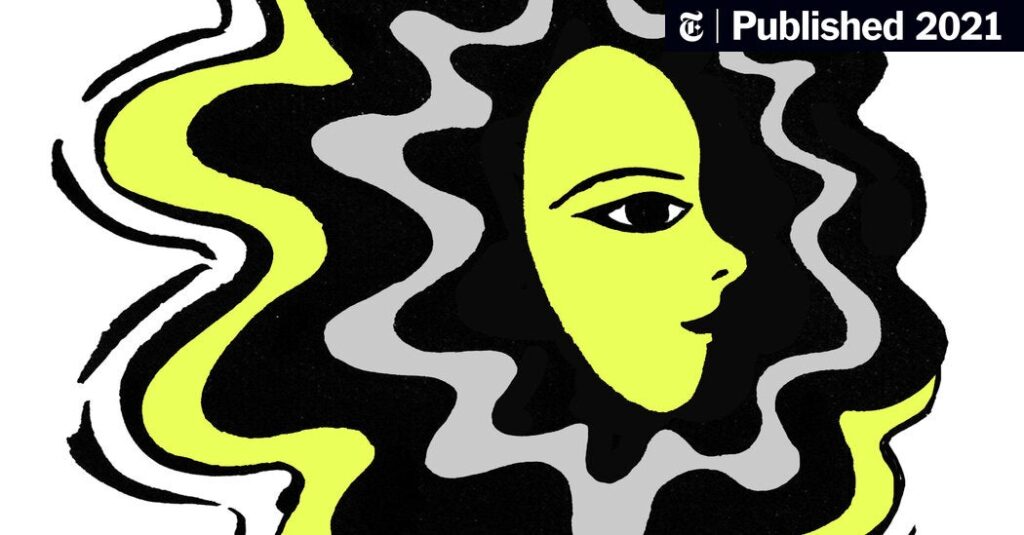Here are five ways to become a more accepting person.
Illustrations by Lydia Ortiz
As a psychologist, I often teach clients in my clinical practice the difference between pain and suffering. Pain on its own can be difficult. But it’s only when you don’t accept it that it turns into suffering.
Of course, more than a year into the Covid-19 pandemic, pain and suffering are understandable experiences. But as a compassionate gesture to yourself, it may be liberating to consider how you approach your own anguish, and if there are ways you can ease it a bit.
After validating my clients’ legitimate distress, I encourage them to deal with challenges by embracing something called radical acceptance. It is a component of the kind of treatment I practice, dialectical behavioral therapy, which was developed by the psychologist Marsha Linehan. Many people know the term from the popular book “Radical Acceptance” by the meditation teacher, psychologist and podcast host Tara Brach.
Radical acceptance means recognizing your emotional or physical distress — whether around minor issues, like traffic, or more significant challenges, such as navigating a chronic illness — and wholeheartedly practicing acceptance.
Though it sounds counterintuitive, accepting negative circumstances can help you feel better. “Life regularly and inevitably involves emotional stress, anger, fears around health, shame around failed relationships,” Dr. Brach told me in an interview, “but anything short of fully accepting our human experience will keep us caught in those emotions.”
One reason is that the habitual ways we deal with difficult situations, like pretending that everything is fine, acting pleasant when feeling resentful or even trying to acquiesce as a way to avoid truly feeling our emotions, are ultimately depleting, not restorative. That’s where the radical bit of radical acceptance comes in. In this case, the word means being all in rather than going halfway, which will feel phony to you and those around you. It’s the difference between accepting you’re anxious and avoiding, and being willing to feel anxious while approaching meaningful opportunities.
Many of my clients initially confuse accepting with resigning themselves to feeling bad, but that couldn’t be further from what this practice intends. Psychologically, acceptance is an active stance that actually promotes change by helping us manage our emotions so we can solve problems. For instance, emotional eating can be a response to feeling bad about excess weight, but in fact, once you compassionately let go of berating yourself it can be easier to make healthy food choices.
One trick to approaching radical acceptance, according to Dr. Brach, is to keep the acronym RAIN in mind. RAIN stands for: Recognize and pause to notice; Allow, or accept your current experience; Investigate, by pinpointing what is happening in your mind and body; then Nurture, by bringing compassion to yourself.
By choosing acceptance in tense situations, you’ll get into the habit of bringing mindfulness to moments in your life when you need it most. As a bonus, studies have also shown that therapies incorporating acceptance reduce suicidality, substance use, anxiety, chronic pain, and improve relationships and subjective well-being.
If becoming a more accepting person feels like an extreme makeover of your personality, research suggests that low-effort self-help exercises, similar to the ones I suggest below, can help you improve peace of mind and quality of life.

